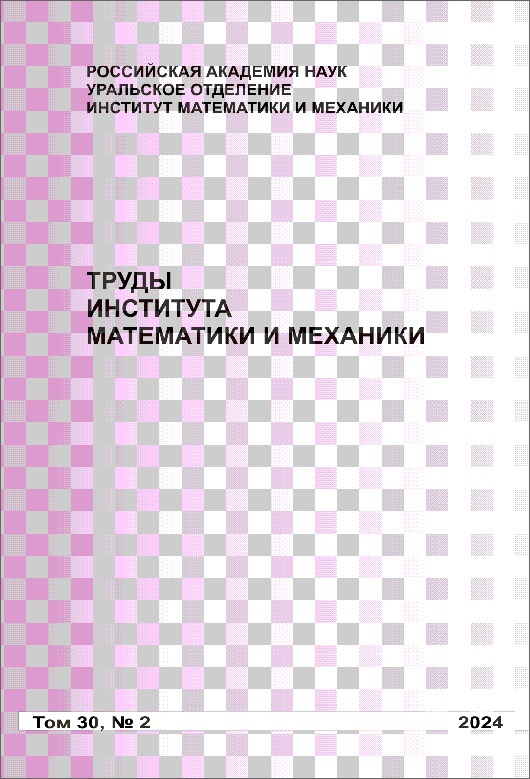|
|
Trudy Instituta Matematiki i Mekhaniki UrO RAN, 2015, Volume 21, Number 2, Pages 73–86
(Mi timm1172)
|
 |
|
 |
This article is cited in 19 scientific papers (total in 19 papers)
Positional strengthenings of the maximum principle and sufficient optimality conditions
V. A. Dykhta
Institute of System Dynamics and Control Theory, Siberian Branch of the Russian Academy of Sciences, Irkutsk
Abstract:
We derive nonlocal necessary optimality conditions, which efficiently strengthen the classical Pontryagin maximum principle and its modification obtained by B.Kaskosz and S.Lojasiewicz as well as our previous result of a similar kind named the “feedback minimum principle”. The strengthening of the feedback minimum principle (and, hence, of the Pontryagin principle) is owing to the employment of two types of feedback controls “compatible” with a reference trajectory (i.e., producing this trajectory as a Caratheodory solution). In each of the versions, the strengthened feedback minimum principle states that the optimality of a reference process implies the optimality of its trajectory in a certain family of variational problems generated by adjoint trajectories of the original and compatible controls. The basic construction of the feedback minimum principle - a perturbation of a solution to the adjoint system - is employed to prove an exact formula for the increment of the cost functional. We use this formula to obtain sufficient conditions for the strong and global minimum of Pontryagin's extremals. These conditions are much milder than their known analogs, which require the convexity in the state variable of the functional and of the lower Hamiltonian. Our study is focused on a nonlinear smooth Mayer problem with free terminal states. All assertions are illustrated by examples.
Keywords:
maximum principle, extremal, adjoint trajectory, necessary and sufficient conditions, feedback controls.
Received: 16.02.2015
Citation:
V. A. Dykhta, “Positional strengthenings of the maximum principle and sufficient optimality conditions”, Trudy Inst. Mat. i Mekh. UrO RAN, 21, no. 2, 2015, 73–86; Proc. Steklov Inst. Math. (Suppl.), 293, suppl. 1 (2016), 43–57
Linking options:
https://www.mathnet.ru/eng/timm1172 https://www.mathnet.ru/eng/timm/v21/i2/p73
|

| Statistics & downloads: |
| Abstract page: | 390 | | Full-text PDF : | 108 | | References: | 66 | | First page: | 13 |
|




 Contact us:
Contact us: Terms of Use
Terms of Use
 Registration to the website
Registration to the website Logotypes
Logotypes








 Citation in format
Citation in format 
